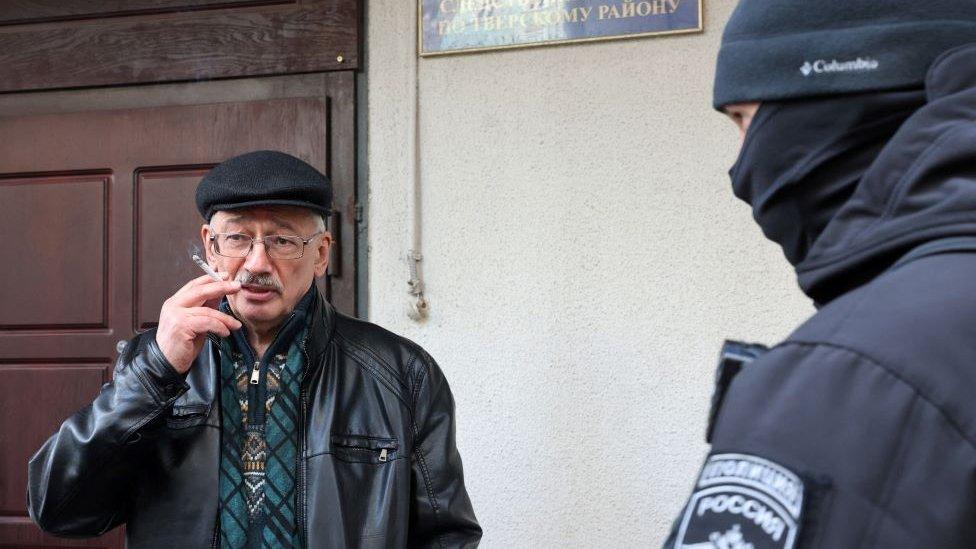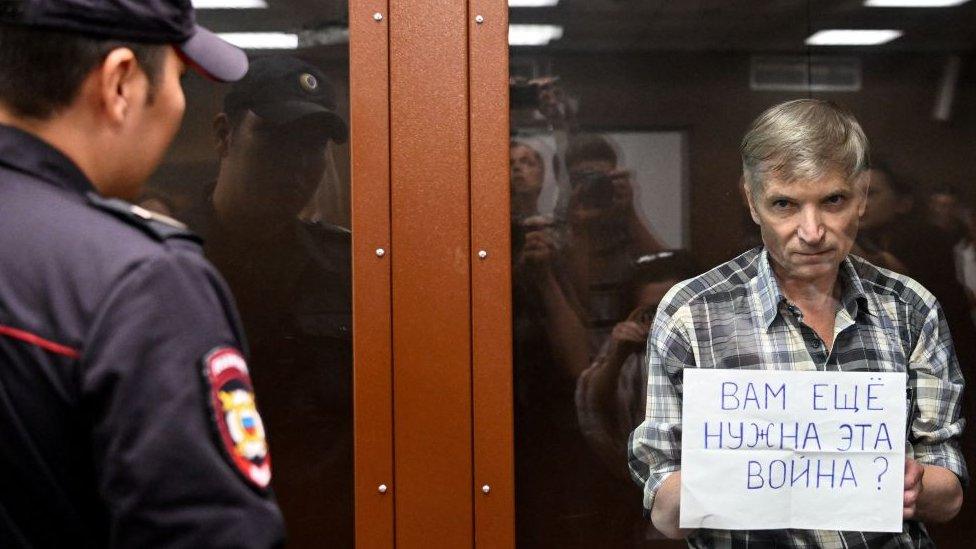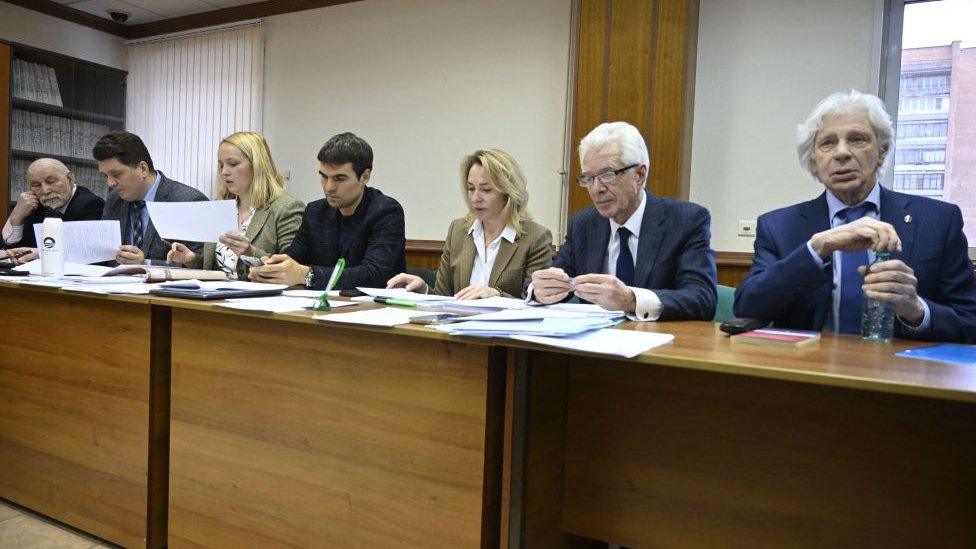Memorial raids: Russia targets leaders of banned Nobel Prize-winning group
- Published

Oleg Orlov, co-chair of the banned Memorial rights group, being taken to the Russian Investigative Committee in Moscow
Nine leaders of one of Russia's oldest human rights groups, Memorial, have been targeted in raids on their homes, 15 months after their organisation was shut down by the courts.
Among them was Memorial's co-chair, Oleg Orlov, who is facing a criminal case for "discrediting" the military.
Founded in 1989, Memorial aimed to remember millions of innocent people persecuted by Soviet repression.
But it was liquidated ahead of Russia's full-scale invasion of Ukraine.
The raids took place after Russia's investigative committee opened a criminal investigation against Memorial for alleged "rehabilitation of Nazism".
Memorial has come under political pressure for years and that intensified in 2014 when Russia annexed Crimea from Ukraine and Russian proxy forces seized areas of eastern Ukraine.
It won the 2022 Nobel Peace Prize jointly with Ukraine's Centre for Civil Liberties and Belarusian civil rights activist Ales Bialiatski.
Mr Bialiatski was sentenced to 10 years in jail this month in a trial condemned beyond Belarus as a sham.
Memorial chairman Yan Rachinsky was one of the leaders targeted in Tuesday's raids. When he picked up the Nobel Prize in Oslo last December, he told the BBC the group had been advised by Russian authorities not to go.
Allow X content?
This article contains content provided by X. We ask for your permission before anything is loaded, as they may be using cookies and other technologies. You may want to read X’s cookie policy, external and privacy policy, external before accepting. To view this content choose ‘accept and continue’.

Liberal outlets in Russia described the searches as part of a new crackdown by the authorities on dissent.
President Vladimir Putin recently accused the West of seeking to provoke civil unrest by using a fifth column of "scum and traitors".
Oleg Orlov is being investigated under a law introduced days after Russian troops marched into Ukraine last year.
The offence of "discrediting the military" has been used repeatedly to give long jail terms to Russians who have dared to criticise the war, including opposition figure Ilya Yashin and Moscow councillor Alexei Gorinov.
Last week the former mayor of Yekaterinburg, Yevgeny Roizman, was jailed for two weeks for posting "extremist" symbols on social media, which he denied.
Allegations of "rehabilitation of Nazism" levelled at Memorial appear to date back to 2021.
According to Memorial, its ex-staff were accused of having three men on its database - of more than three million victims - who authorities took issue with. They included two sentenced for treason and another convicted of working for a Nazi police unit.
The three names in question were highlighted at the time by President Putin.
Memorial said the men had been blocked from the database. With such a large database there were always errors, external, it said, which it was trying to identify and correct.
Yan Rachinsky from Memorial: "In today's Russia no-one's personal safety is guaranteed"
Related topics
- Published8 July 2022

- Published25 January 2023
